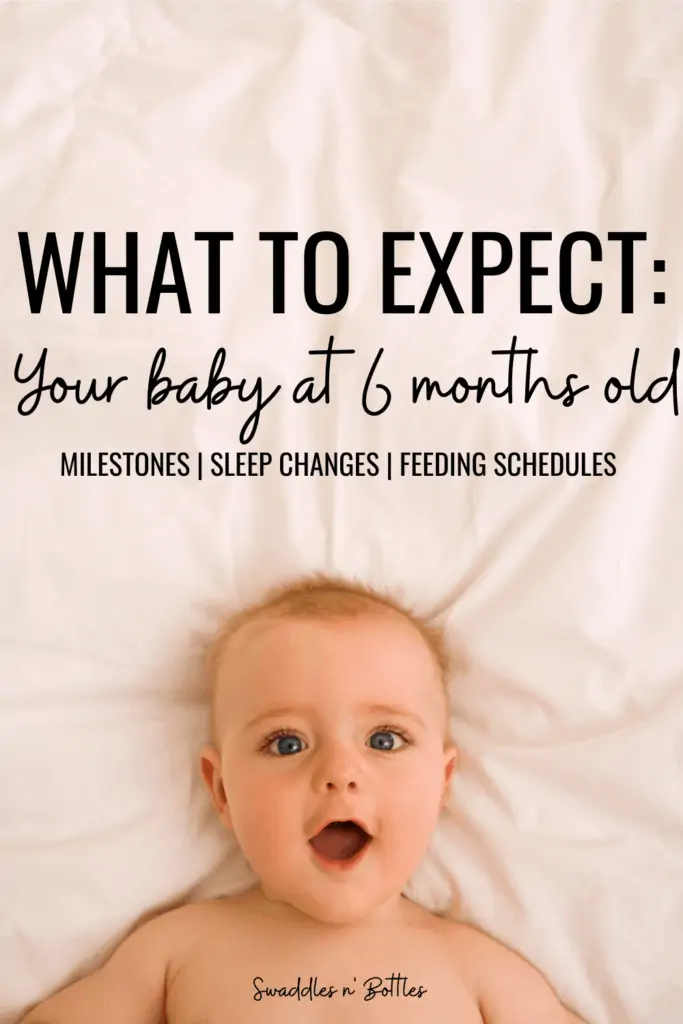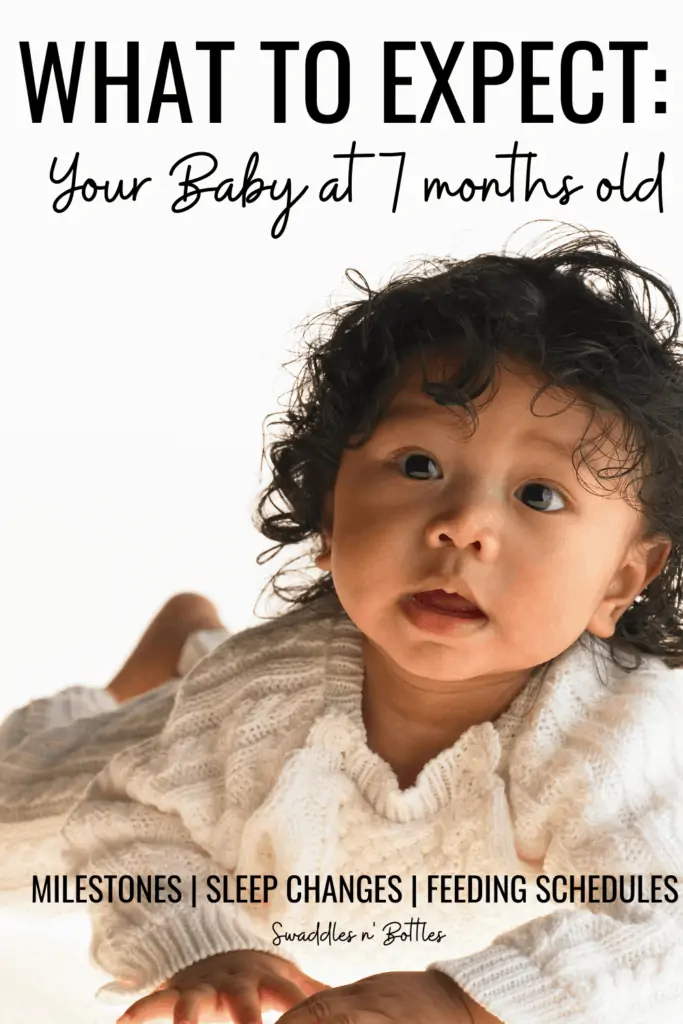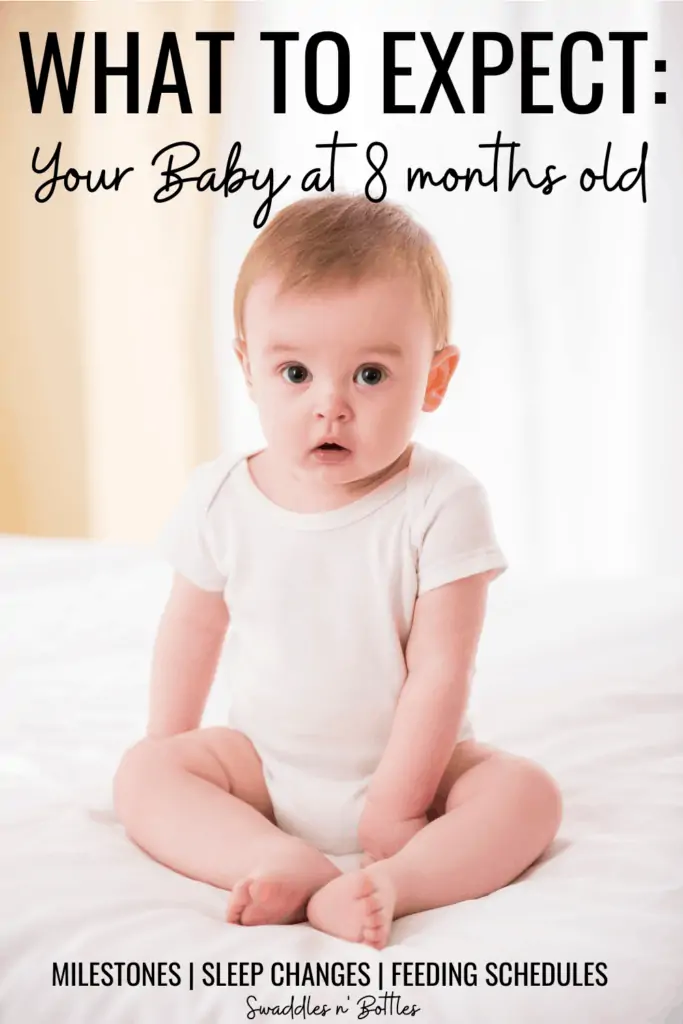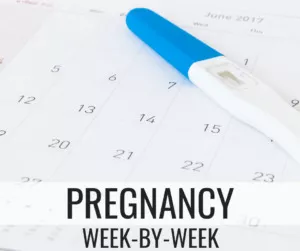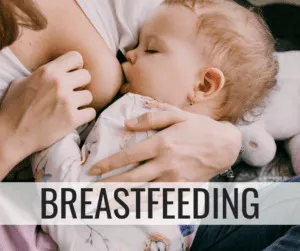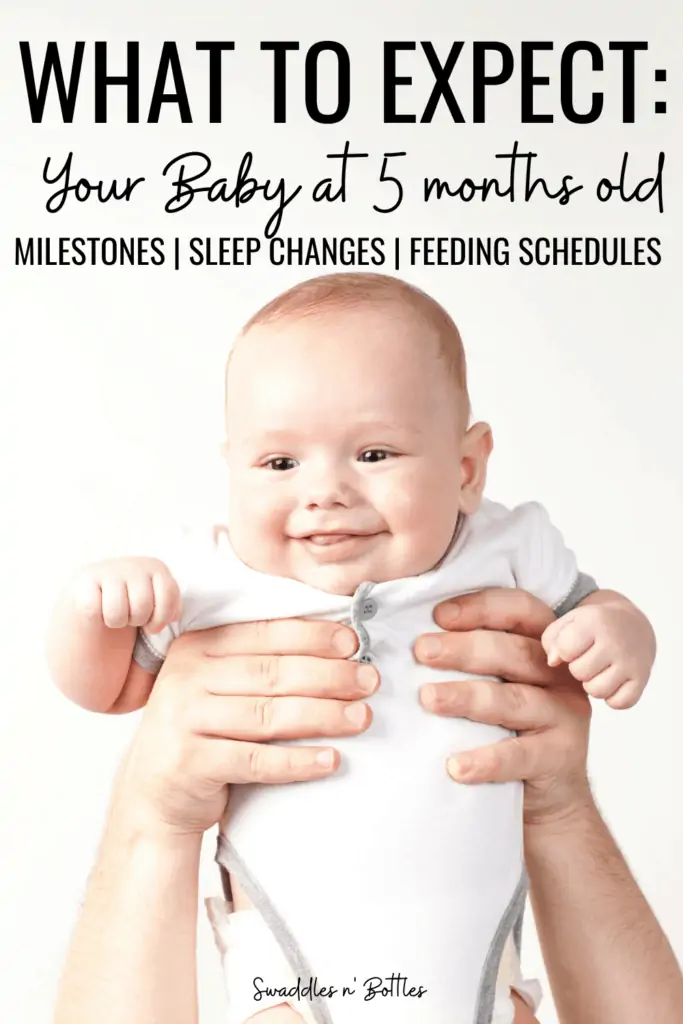
Your Baby—Month Five Milestones and MORE!
In the fifth month, your baby is much livelier and more playful. You have made it one-third of the way through the first year. Smiles, giggles, coos, and cries all make up the sounds of your day. Your baby is playing more and interacting with more than just you and your partner. Development is still happening in general timetables, so don’t worry if your baby is a little ahead or behind.
Physical
Physical Changes are still primarily weight and length in terms of growth, but you may start to notice patterns with your children. Many will “pudge” then “stretch” as they grow. This means they will gain weight and they will get chubby, followed by the increased length and slimming. When your baby is slimming, they are not usually losing weight. Instead, they are redistributing it as they get longer. Other babies seem to gain both at once. Don’t be alarmed if your baby is somewhere in between.
Core Strength
The core strength of your baby is improving every day. You might notice that your baby is now lifting him or herself off the playmat a little more. Upper body and legs may come up simultaneously. This activity might look tough for your body, but it is a great strength-building exercise for core strength. Keep encouraging this behavior. Your baby cannot sit up independently, but with help, you might see that the posture and sitting position are primed for later independent sitting later.
Sight
Your baby’s sight is improving daily. Most babies are “far-sighted” in the beginning. We put this in quotes as they do not typically stay that way, which is consistent with typical development. Children have trouble discerning things that are very close. You might also notice that your child’s eyes look crossed now and then. Inconsistent crossing is typical for child development as eye fatigue can cause this phenomenon.

Sleep
Sleep is crucial for cognitive and physical development. As your baby grows, he or she may not sleep as much as before. Some children also do not nap as long or often during the day but opt for longer sleeping times at night. If your baby sleeps 11 to 12 hours at night, do not be surprised if naps are only an hour or so long and limited to one or two per day. Babies need about fourteen to sixteen hours of sleep a day, and some children prefer to get most of it at once. This pattern is typical and expected.
Tasting and Chewing
Tasting and chewing are expected during this period. You might notice that your baby chews and produces a lot of saliva. There isn’t anything wrong. The more your baby uses their mouths, the more saliva will be produced. The sensors in the mouth (taste and feel) are more acute than those on the hands at this point. The easiest way to learn about the world is to chew and feel. Likewise, it’s not unusual for your child’s teeth to begin preparing to erupt. Some babies may even have one poking through already. It’s not quite time for the typical child to have a tooth, but not unusual either. Here’s a great list of teething relief tips.
Cognitive
Cognitive development is happening even faster. Your child will start to learn more than faces and voices now. All that exploration with their mouths and hands is starting to pay off.
A Source of Entertainment
Your child is starting to learn that he or she can trigger your smiles and laughter. Likewise, your baby will find themselves very entertaining. A mirror can provide hours of fun. Laughter is the best thing in the whole world, according to your sweet baby. Your child will laugh and try to make you laugh. Funny noises are comedic gold.
Self-Assurance
Your child can start to play alone. No longer will a loved one be required for entertainment. Children are beginning to see more clearly, and their depth perception is improving. These new visual skills will keep them interested in a variety of tasks, and they will not crave mom’s interaction as much.
Self-Identification
This has nothing to do with how your baby will identify later in life. At this point, your baby is learning what they look like when looking in mirrors. Just as their face provides endless entertainment, it is also helping them learn about their features. They also learn what it looks like to make silly faces or sounds.
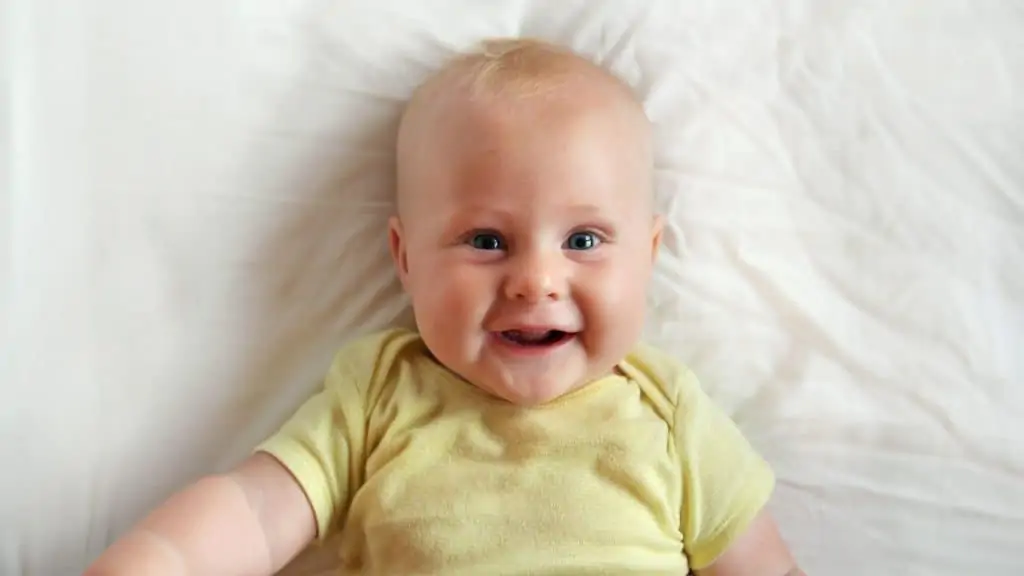
Feeding
Feeding in month 5 of your baby’s life is still breast milk and/or formula. However, you are getting very close to being able to taste test some of baby’s first foods. Read on to What to Expect: Month 6 for more details on introducing solids to baby.
Concerns
As your baby grows, you will be able to tell if they are generally on target for most of these things or behind in doing them. However, most babies do not do these things at exact moments. You cannot determine whether your baby’s first smile will come at six weeks or two. On the other hand, we know that if babies aren’t doing certain things by specific dates, a conversation with doctors might be in their best interests. Trust your gut and voice any concerns you may have about your child development.
Pep Talk
All of these changes can be overwhelming. This world of milestones can be difficult to navigate if this is the first baby you have been around as an adult. Every baby grows and develops at his or her own rate. Don’t be afraid to check on milestones with your doctors, but don’t get too stuck in exact dates.

